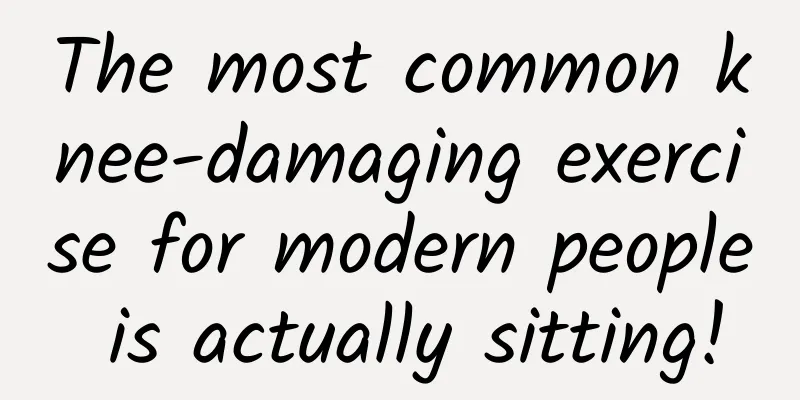Neither 80-year-old Biden nor 43-year-old Huo Qigang can escape this, so you also have to be careful about this matter!

|
Recently, US President Biden and Hong Kong celebrity Huo Qigang have been on the hot search due to the same situation↓ Bloomberg reported that recently, US President Biden began using a CPAP machine to treat long-standing sleep apnea syndrome. On June 28, local time, 80-year-old Biden left the White House for Chicago to give a speech on economic issues. When he spoke to the media at the White House, the marks of the CPAP straps on his face were clearly visible. At an event at the White House on the 26th, Biden also had similar marks on his face. Coincidentally, 43-year-old Huo Qigang recently participated in the TVB program "Sleep Well, Wake Up Well" and underwent a professional sleep test. As a result, he was diagnosed with insomnia and moderate sleep apnea, and his real deep sleep time was only four hours. Huo Qigang said in an interview that although he went to bed early, he was often awakened by his snoring in the middle of the night, and then he couldn't fall asleep or woke up frequently. In addition, because he breathed through his mouth, he felt dry mouth when he woke up. Even if he slept for 7 hours, he faced strong work pressure after getting up, and felt very tired during the day. ▲In the TVB program "Sleep Well, Wake Up Well", Huo Qigang was pointed out to have sleep disorders (Source: Video screenshot) What exactly is the "sleep apnea syndrome" that has troubled both Biden and Ho Kit-yung? What is sleep apnea syndrome? Sleep apnea syndrome, also known as sleep apnea-hypopnea syndrome, refers to repeated apnea more than 30 times during 7 hours of sleep every night or the sleep apnea-hypopnea index (AHI) ≥ 5 times/hour accompanied by clinical symptoms such as drowsiness. Apnea refers to the complete cessation of oral and nasal breathing airflow for more than 10 seconds during sleep; hypopnea refers to a decrease in the intensity (amplitude) of respiratory airflow by more than 50% compared with the baseline level during sleep, accompanied by a decrease in blood oxygen saturation of ≥ 4% compared with the baseline level. The sleep apnea-hypopnea index refers to the number of apneas and hypopneas per hour of sleep. There are three types of sleep apnea: 1. Obstructive sleep apnea (OSAHS), that is, apnea caused by upper airway obstruction during sleep, manifested as cessation of airflow in the mouth and nose while chest and abdominal breathing movements still exist. It is a sleep breathing disorder that affects multiple systems and causes damage to multiple organs. It is an independent risk factor for many diseases such as hypertension, coronary heart disease, arrhythmia, and stroke. 2. Central sleep apnea (CSAS), that is, the airflow from the oral and nasal cavities and the breathing movements of the chest and abdomen stop at the same time. It is mainly due to the dysfunction of the respiratory center of the central nervous system or the lesions of the nerves or respiratory muscles that control the respiratory muscles. Although the airway may not be blocked, the respiratory muscles cannot work normally, resulting in respiratory arrest. 3. Mixed sleep apnea (MSAS), which is the coexistence of the above two, starting with central apnea and then manifesting as obstructive sleep apnea. The decrease in tidal volume during sleep, that is, the decrease in respiratory airflow by more than 50% of the normal airflow intensity, accompanied by a decrease in blood oxygen saturation of more than 4%, is called hypopnea or hypoventilation. 1 in 5 people who snore have sleep apnea Sleep apnea syndrome is not formed in a short period of time, but a slow development process. There are many factors that trigger it, and it is often the result of several causes. These include age, weight gain, gender, family history of OSAHS, upper airway anatomical abnormalities, long-term heavy drinking, long-term smoking, taking sedatives, and other related diseases. (Source: Guangzhou Daily) Obesity: Obesity is the biggest independent risk factor for sleep apnea syndrome. According to statistics, 90% of obese men and 50% of obese women suffer from sleep apnea syndrome. Age: As people age, the prevalence of sleep apnea increases due to the decline of muscle and nerve function. The prevalence of sleep apnea syndrome increases significantly in men over 30 years old and women after menopause. ▲80-year-old Biden uses CPAP to treat long-standing "sleep apnea syndrome" (Source: Visual China) Gender: The incidence rate in men is more than 2 times higher than that in women. Upper airway anatomical abnormalities: space-occupying lesions (such as enlarged tonsils, adenoids, cysts, tumors, macroglossia, etc.), retruded chin or small mandible, loose pharyngeal tissue, airway stenosis, nasal septum or turbinate deformities, etc. Family history: Many risk factors for sleep apnea syndrome have genetic and hereditary basis (such as obesity and maxillofacial structure genes). Most family members have small mouths and small jaws, or common bad living habits make more people in the family overweight. Long-term heavy drinking: taking hypnotic and sedative drugs Long-term drinking, taking hypnotic and/or sedative drugs can suppress the central nervous system and relax the pharyngeal muscles, aggravating the obstruction of the airway. Long-term smoking: Long-term smoking can irritate the pharynx, causing inflammation and edema, and narrowing the pharynx. Other related diseases: including hypothyroidism, neurological disorders such as cerebral palsy, muscular dystrophy and muscle weakness, gastroesophageal reflux, acromegaly, heart failure, stroke, etc. "Obese people; people who don't like exercise and have loose muscles; men over 30 years old; people with bad habits such as smoking and drinking; children who breathe through their mouths for a long time are all high-risk groups for sleep apnea syndrome." emphasized Wang Jiaxi, chief physician of the Department of Otolaryngology at Beijing University of Chinese Medicine Oriental Hospital. Should I see a doctor for sleep apnea? Sleep apnea can happen to many people, but the severity can vary. Although sleep apnea only lasts for a few seconds, it has a great impact on the body, such as decreased sleep efficiency, daytime sleepiness, and even feeling like you haven't rested all night. Long-term sleep apnea and poor sleep quality can lead to sympathetic-parasympathetic dysfunction, obesity, hypertension, arrhythmia, cerebral hypoxia, etc., and can cause serious organic diseases of other organs. Generally speaking, through the monitoring of professional instruments in the hospital, when the sleep apnea index is less than 5, it can be ignored, and when it is greater than 15, it should be taken seriously. Because the disease occurs during sleep, it is difficult for family members and themselves to find it. There was such a case. The patient went to the hospital for a checkup of cerebrovascular problems because of dizziness and daytime sleepiness due to high blood pressure that was still not well controlled with multiple drugs. The patient then found the problem of sleep apnea, and the patient's apnea hypopnea index (AHI) index had reached more than 30, which was severe sleep apnea. When encountering such a serious patient, the doctor will recommend him to use a home ventilator. When the patient's breathing stops and the airway resistance increases, the ventilator will automatically increase the pressure to open the patient's airway and continue to breathe. After a week of persistence, the patient will feel no longer sleepy during the day, dizziness and mental state will also improve, and blood pressure will gradually be controlled. Therefore, if the problem in sleep is discovered, it is no longer a small problem, and medical treatment should be sought in time. (Source: Guangzhou Daily) Risk self-assessment 1. Do you often feel dizzy and weak during the day and want to sleep at any time? 2. Has your partner noticed that you snore loudly and hold your breath when you sleep? 3. Do you have a disordered sleep rhythm and wake up frequently? Sometimes you even wake up suddenly because you can't breathe. Do you often feel chest tightness or difficulty breathing when you wake up? 4. Do you have hypertension or are you being treated for hypertension? 5. Is your BMI (BMI=weight kg/height m²) greater than 24, or your neck circumference greater than 40 cm? If you answer "yes" to three of the above questions, then you are at high risk of sleep apnea syndrome and need to go to a regular hospital for sleep breathing monitoring as soon as possible and follow the doctor's advice. Zhang Xiaolei, chief physician of the Department of Respiratory and Critical Care Medicine at the China-Japan Friendship Hospital, reminds that ordinary snoring is even and changes with sleeping position, and has no obvious effect on the human body. If you have snoring one after another, breathing pauses during sleep, and daytime drowsiness and other symptoms, you should be alert to whether it is sleep apnea syndrome. It is important to get a good night's sleep The news that the topic #Ho Kit-yung suffers from sleep apnea# became a hot topic shocked many netizens. Many media outlets reported on it, and the titles of many articles made people feel that he seemed to be "terminally ill" and "about to die." Later, Huo Qigang posted a message on his personal social media platform to "report safety", saying that he was fooled by the "clickbait" and that he was in very good health. Although sleep apnea syndrome is not as terrible as netizens misunderstand, it is still very important to get a good night's sleep. One-third of a person's life is spent in sleep. Sleep is an active process of the human body and an important part of the body's recovery, integration and consolidation of memory. Effective and sufficient sleep can promote human growth, eliminate fatigue, and restore physical strength. Of course, if you want to get a good night's sleep, you must choose the right method~ (Source: Guangzhou Daily) Compiled by Zhang Hongwei, New Media Editor (This article is compiled from Huanqiu.com, Guangzhou Daily, Science Popularization China, Beijing Science and Technology Daily, Zhongshan Hospital Affiliated to Fudan University, Family Doctor Daily, and Beijing News) |
>>: Insects are out in the summer, please be careful!
Recommend
Tencent's top 10 open source projects for WeChat and mobile development
Tencent has open-sourced many very valuable proje...
Do potatoes have “natural enemies”?
Potato (Latin name: Solanum tuberosum, English: P...
Sharing of high-quality cases: How to create creative information flow advertising? This is very detailed~
We talk about optimizing creativity every day, bu...
"Chinese Tea" was successfully nominated for World Heritage!
On the evening of November 29th, Beijing time, th...
This creature is changing the global aquatic ecosystem! There are more than 900 per liter of water in Poyang Lake.
Plastic pollution is changing the global aquatic ...
What does a mobile phone need to do to completely replace a PC?
Not long ago, it was rumored that the Snapdragon ...
vivo TWS Neo review: The price is halved and the configuration is upgraded, a bucket-shaped true wireless headset rarely seen in the market
In September 2019, vivo launched its first true w...
Fan-shaped ears, long nose, what you see is just my appearance
Today I want to share with you the story of the n...
Why do I spend money on information flow promotion but get no conversion?
" Why do you give me hope but let me down ?&...
Getting Started Guide to Short Video Promotion!
From the traditional "two Weibo" to tod...
What would happen if you jumped from space with a parachute? Would you be able to land safely?
It depends on how you define "space". T...
Studying legal medicine from the case of Li Changyu: Not all the criminal investigation methods you are familiar with are reliable
The case of Chinese "super detective" L...
Deep learning of Huawei's car-making model, Jiyue 01 is launched, can Baidu Apollo successfully compete with Hongmeng?
In October, the high-end intelligent car robot br...
The CTR is the same, which copy has a better conversion rate?
Have you ever encountered such accounts in the pr...
Re-experience the most popular mobile phone ten years ago
In 2004, Motorola Mobility brought us the Razr V3,...






![[Smart Farmers] The Yellow River Protection Law has entered the legal track by protecting the mother river](/upload/images/67f253e18cf45.webp)


